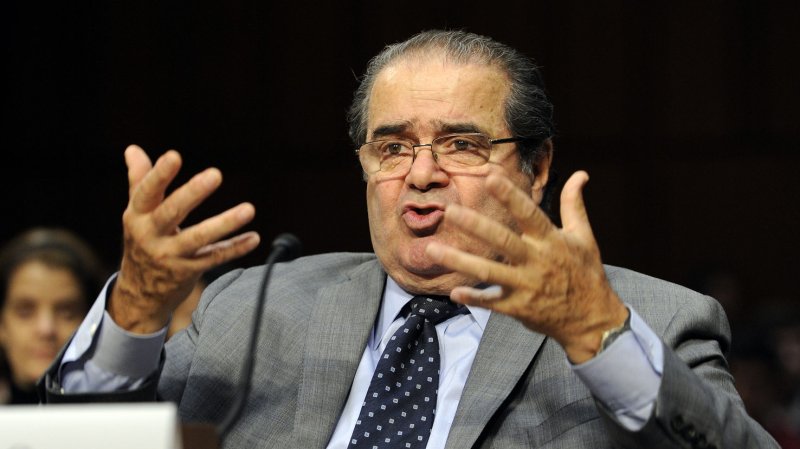Supreme Court Justice Antonin Scalia insisted that the new law reducing the sentences for crack possession should not affect those sentenced under the old law. UPI/Roger L. Wollenberg |
License Photo
WASHINGTON, April 17 (UPI) -- The U.S. Supreme Court appeared undecided during argument Tuesday on whether a law reducing prison terms for crack cocaine should be used retroactively.
Until the passage of a 2010 law, crack cocaine crimes were punished with the same severity as crimes involving 100 times more powder cocaine -- a disparity that affected blacks more often than whites. Citing that disparity, Congress cut the ratio in 2010 to 18 to 1.
At issue is whether someone who committed a crack crime before the 2010 law was enacted but sentenced after it was passed should get the benefit of the reduced sentencing.
SCOTUSBLOG.com reported that during Tuesday's argument Justice Antonin Scalia relentlessly insisted that since the law did not contain a retroactive provision, the new law should not affect those sentenced under the old law.
But several court members, including liberal Justice Sonia Sotomayor, appeared to be troubled by the disparate impact the law had on blacks, the report said.
The case heard by the high court involves two Illinois men given lengthy prison sentences after they were convicted of selling crack cocaine, even though they were not sentenced until after the 2010 law was passed, the Los Angeles Times reported.
Corey Hill got 10 years in December 2010 for selling 53 grams of crack to an informant in 2007. He would have received about four years under the new law. Edward Dorsey got 10 years, because of previous convictions, for selling 5.5 grams of crack in Kankakee, Ill.
A federal appeals court upheld the sentences. After U.S. Attorney General Eric Holder announced he had changed his position and believes the new law should apply to defendants who committed crimes before it was enacted, the full 7th Circuit Court of Appeals reheard the case and split 5-5.
The U.S. Supreme Court should hand down its decision before the summer recess begins in late June.















